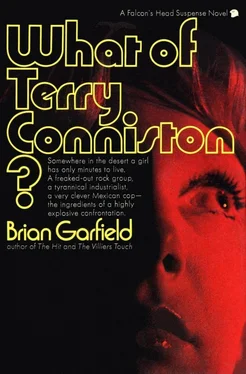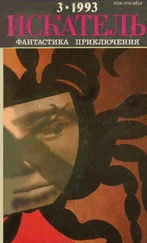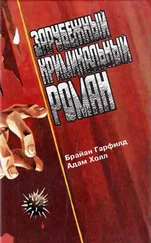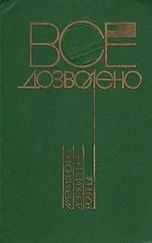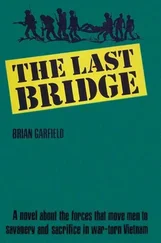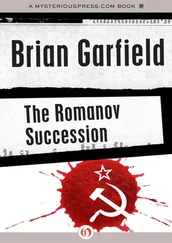Брайан Гарфилд - What of Terry Conniston?
Здесь есть возможность читать онлайн «Брайан Гарфилд - What of Terry Conniston?» весь текст электронной книги совершенно бесплатно (целиком полную версию без сокращений). В некоторых случаях можно слушать аудио, скачать через торрент в формате fb2 и присутствует краткое содержание. Город: New York, Год выпуска: 1971, Издательство: World Publishing, Жанр: Криминальный детектив, thriller_psychology, на английском языке. Описание произведения, (предисловие) а так же отзывы посетителей доступны на портале библиотеки ЛибКат.
- Название:What of Terry Conniston?
- Автор:
- Издательство:World Publishing
- Жанр:
- Год:1971
- Город:New York
- ISBN:нет данных
- Рейтинг книги:3 / 5. Голосов: 1
-
Избранное:Добавить в избранное
- Отзывы:
-
Ваша оценка:
- 60
- 1
- 2
- 3
- 4
- 5
What of Terry Conniston?: краткое содержание, описание и аннотация
Предлагаем к чтению аннотацию, описание, краткое содержание или предисловие (зависит от того, что написал сам автор книги «What of Terry Conniston?»). Если вы не нашли необходимую информацию о книге — напишите в комментариях, мы постараемся отыскать её.
A freaked-out rock group, a tyrannical industrialist, a very clever Mexican cop — the ingredients of a highly explosive confrontation.
What of Terry Conniston? — читать онлайн бесплатно полную книгу (весь текст) целиком
Ниже представлен текст книги, разбитый по страницам. Система сохранения места последней прочитанной страницы, позволяет с удобством читать онлайн бесплатно книгу «What of Terry Conniston?», без необходимости каждый раз заново искать на чём Вы остановились. Поставьте закладку, и сможете в любой момент перейти на страницу, на которой закончили чтение.
Интервал:
Закладка:
As he spoke Floyd kept his eyes level on Mitch. Mitch felt cornered. He said, “They’ll bring the FBI in right off.”
“What if they do? They won’t find us. Nobody will — nobody can.”
“Nuts,” Mitch said. “It’s ridiculous. You’re not even talking about kidnaping a little kid. The girl’s grown up.”
“Are you suggesting the five of us can’t handle one seventeen-year-old girl?” Floyd aimed a slow wink at Theodore, who uttered a penetrating rasp of a laugh.
Mitch looked at the others, suppressing a sense of panic. He saw no help anywhere. Georgie’s eyes weren’t tracking quite right but even so he was pointedly avoiding Mitch’s gaze. Theodore and Billie Jean moved forward and fixed themselves to Floyd. Dark sweat-circles stained the armpits of Theodore’s T-shirt. Mitch felt his face color under Theodore’s ugly one-eyed stare.
Floyd smiled and reached out suddenly, gripping Mitch’s arm. The steel fingers bit into Mitch’s flesh, the thumb casually working cartilage against bone. Mitch burst out in a gray sweat. Floyd said softly, “I need you to make it work, Mitch.”
“I—”
“You’ll do it. You didn’t like grinding your life away in school, did you? You don’t want to starve on the beer circuit, do you? It’s the best opportunity anybody ever offered you.”
“I never did anything like that in my life,” Mitch said weakly. “I never even thought about it before.”
“It’s a me-first world, Mitch. You take what you can grab.”
Theodore said, “If Floyd says we need you then you do like he says. Or we turn out your lights, see?”
Floyd turned his arm loose. Mitch rubbed the pain abstractedly. He wasn’t looking at anybody. He could hear the ragged sawing of Theodore’s breathing.
He said, “All right — all right. Hell, why not?”
Floyd smiled. “That’s the way.” Then, turning away, he stopped to look at Mitch once more, and asked merrily, “Am I not a son of a bitch, Mitch?” He laughed.
Mitch nodded with little jerks of his head. He knew what he was going to do anyway. He was going to get loose of them the first chance he saw and make a run for it.
Chapter Four
Earle Conniston’s ranch sprawled across a third of a million scrub-grass acres of valley and foothills. A hand-crank gasoline pump stood at the end of the landing strip opposite the windsock. Coming in an hour ago, Carl Oakley had had to buzz the strip twice to chase half a dozen white-face steers off the grass runway. He had parked his Cessna beside Conniston’s big Lear Jet and hitched a ride with a Mexican cowboy in a jeep loaded with rock-salt to the main house a quarter of a mile from the airfield. The house was boomerang-shaped, elaborate and Moorish, built of high-quality adobe with the archways of a shady galleried verandah running the length of it. The house was shaded by a copse of tall heavy cottonwood trees, planted twenty-five years ago and earnestly watered twice a week.
Twenty-three years ago Oakley, the young GI-Bill lawyer, had met Earle Conniston, the thirty-five-year-old businessman. A knee-injury from college football had kept Conniston out of the wartime army and by 1947 Conniston had built a small war-surplus junk business into the beginnings of a cartel. Conniston in those days had had a glittering smile, a quick glibness, a pushing dogged ambition. He was chest-combingly masculine, big-shouldered with thick hair on his arms and legs, and eyes that needed to look at things only once: he could absorb hundreds of details with a glance. He was big enough to seem oversized, as craggy as Rushmore even at thirty-five. He wasn’t ugly but he was huge and rough; he had the important look of austere dignity that prevented people from slapping his back or elbow-nudging his ribs — he always got quick service from waitresses and desk clerks.
Oakley had met him in a poker game. By 1949 he had won two lawsuits for Conniston and made himself indispensable to the rising buccaneer. He had appraised Conniston of the tax advantages of cattle ownership and scouted the Southwest until he had found the right property at the right price. Eighteen years ago, on Oakley’s advice, Conniston had bought this ranch.
Since the end of the war in Korea Earle Conniston had divided and multiplied like a financial amoeba. He was a tough grizzly and, fittingly, his powerful wealth came right out of the guts of the world — oil from Texas, steel from Michigan, steamships prowling the oceans, lumber and pulp mills in northern California, trucks on highways and tractors on vast company-owned farms and ranches from Florida to Montana.
Oakley had traveled the whole route with him. His personal fortunes had massed, the result of abundant salary and generous bonuses; if remaining a mere salaried employee disturbed him he gave no indication of it. Conniston never offered partnership and Oakley never demanded it. But the intricate convolutions of the Conniston empire were kept in balance mainly by the cleverness of Carl Oakley’s brain; Oakley had seen to it that he became the vital cornerstone of the structure. They were friends; they respected each other’s talents like two generals, one of whom commanded plans and the other operations; yet it was an alert relationship, honed by mutual distrust. Sometimes in fits of black humor Oakley saw himself as Conniston’s Rasputin. He lacked the power to displace the czar on the throne; yet he had far too much damaging knowledge ever to be expendable.
Today Oakley had come down from Phoenix in two hours, been met by Conniston’s third wife, Louise, and shown to the largest of the guest bedrooms, where he stripped and showered in preparation for the long afternoon’s intense conference. He scratched his belly and stood in front of the mirror with his lips peeled back, inspecting his strong teeth and thinking idly that perhaps it was about time he got married. The decades of sybaritic bachelorhood were beginning to wear on him. A little flab starting to show up around the waist and shoulders: it might be best to find a marriageable woman before he lost his hair and his looks. Getting into slacks and sport shirt, he ran down the catalogue of eligible divorcees and spinsters, made a face and went out into the thick-walled corridor.
The house was cooled by a seven-ton air-conditioning plant concealed in oleander bushes beyond the swimming pool; the corridor was noiselessly cool in spite of the hundred-degree heat outside. Oakley’s moccasins flipflopped along the carpeted hundred feet of hallway to the huge front room, where Louise stood petulantly arranging flowers in a vase. Either she hadn’t seen him or she was pretending to be unaware of his approach. She moved around the vase, inspecting it from various angles, moving slowly because it was more graceful; almost everything Louise did was studied. She was only twenty-eight. Conniston had met her two years ago in New York, shortly after the divorce from his second wife. Louise had been a showgirl-turned-actress; in some ways Oakley knew more about her than Conniston did, since it had been his job to run down her past when Conniston became serious enough about her to warrant the investigation. She had worked her way up from modeling runway to off-Broadway stage, done a few television commercials and been tapped by a producer to play the ingenue opposite Henry Fonda in a bit of Broadway fluff that ran seven weeks. That was where Conniston had seen her; he had invaded backstage country, breached her dressing room and rushed her like a football running-back.
Conniston had the customary tycoon’s desire for younger women; he also liked talent in his women. His first wife, Terry’s mother, had been a violinist; when her desire to return to her career had crossed Conniston’s need for an ornament and social hostess the marriage had cracked up. The second wife had been a painter; her work was as vivid and flashy as her person. Conniston had paid an art professor to write a book about her painting but even that hadn’t helped get the canvases into respectable galleries; her one and only critical notice in the New York Times had said, “As for Mrs. Conniston’s work, aside from a certain flamboyant gusto, it can only be described as a mediocre example of the neo-excretionist school.” That marriage had soured for much the same reasons that caused today’s rigid expression on Louise Conniston’s sensuous face.
Читать дальшеИнтервал:
Закладка:
Похожие книги на «What of Terry Conniston?»
Представляем Вашему вниманию похожие книги на «What of Terry Conniston?» списком для выбора. Мы отобрали схожую по названию и смыслу литературу в надежде предоставить читателям больше вариантов отыскать новые, интересные, ещё непрочитанные произведения.
Обсуждение, отзывы о книге «What of Terry Conniston?» и просто собственные мнения читателей. Оставьте ваши комментарии, напишите, что Вы думаете о произведении, его смысле или главных героях. Укажите что конкретно понравилось, а что нет, и почему Вы так считаете.
